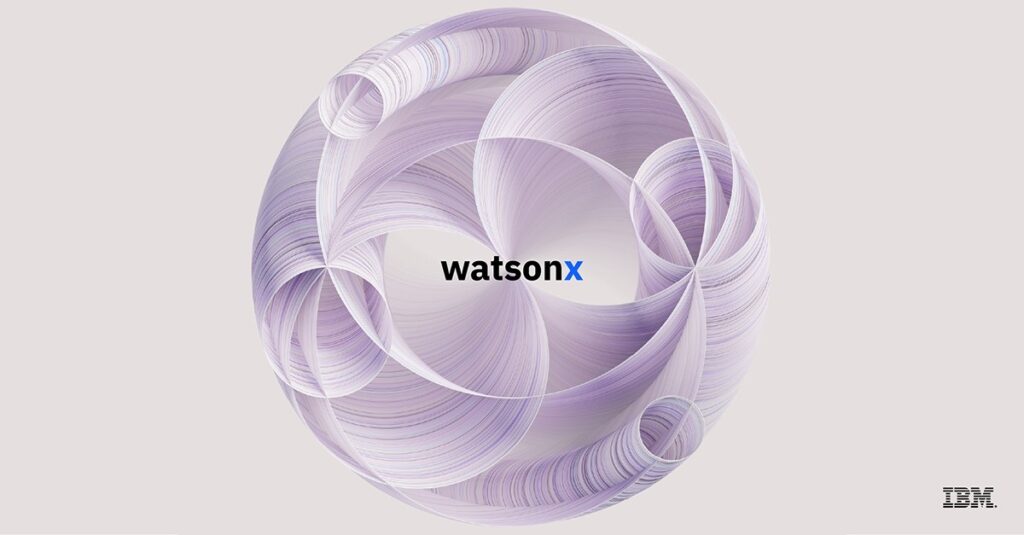Business
10 Questions regarding SDG to the company’s management and board
September 8, 2021 | Written by: Camilla Kampmann
Categorized: Business | Sustainability
Share this post:
We have all together manged to create the most serious sustainability deficit and our greatest challenge is the ecological debt – a dept which we are running up by overusing and depleting our natural resources and thereby threatening our ability to meet the needs of future generations. Worldwide, the strains on key resources, from fresh water to fertile land, put human existence at risk. Today humanity uses the equivalent of 1.7 earths. With the global consumption of material resources increasing fourteen-fold between 1900 and 2015, and projected to more than double between 2015 and 2050, the world is quickly moving towards several tipping points. In addition to the environmental strain, this poses a serious challenge to the EU economy, which is dependent on materials from international markets. Awareness and action among company board members and executives play a huge role in resolving this scary development.
Why should you as a board member and executive care?
As a representative of a company, you must care and act because biodiversity and ecosystems are increasingly threatened by companies’ actions. For example – in just 40 years world vertebrate species populations have declined by 60% on average. Tropical forests are being destroyed at fast rates, with an area approximately the size of Greece lost every year. This is not ‘somebody else’s problem’. In the EU, only 23% of species and 16% of habitats are in good health. Animal-based food has a particularly high land-use footprint and the growing demand for seafood puts significant pressure on marine ecosystems. We don’t need to thin that long and much to identify companies as well as actions done by companies that contributes to this negative view.
Another example that is easy to relate to and reflect upon is the energy and emission consumption by society and hence companies. Global greenhouse gas emissions continue to rise at an alarming rate, with energy use but also overconsumption of resources and destruction of ecosystems as key drivers. Transport is responsible for 27% of the EU’s greenhouse gas emissions, and many urban areas are in breach of agreed EU air pollution limits. Food production is still a significant consumer of water and energy and emitter of pollutants, being responsible for approximately 11.3% of EU greenhouse gas emissions.
If left unaddressed, the devastating impact of climate change and degradation of natural capital will seriously impact the economy, reduce the quality of life all over the planet and increase the intensity and frequency of natural disasters, putting more lives in jeopardy. While turning these negative trends around comes at a cost and requires strong collective effort, the cost of inaction and the associated social fallout would be much higher.
In UN’s latest report regarding the state of the climate changes – they predict that 100-year events will in the future happen every year. With for example this summer floods in Germany, Belgium, and Luxembourg it takes very little imagination to see a future we do not want to experience.
This is what we all can do to to stop this development, including companies
This is a fact: All of us in the EU are overusing our share of the planet – people as well as companies. Sustainable development is about “living well within the limits of our planet” through smarter use of resources and a modern economy that serve our health and well-being.
We should therefore continue the path that we set ourselves here in EU: a transition to a low-carbon, climate-neutral, resource-efficient, and biodiverse economy in full compliance with the United Nations 2030 Agenda and the 17 SDGs. Our economic growth must depend less on non-renewable resources so that we maximize the use of sustainably managed renewable resources and ecosystem services.
We have all we need here in EU to succeed
Is your company situated in the EU? Well then I can assure you it is a nice place to be in this context. For many reasons.
EU legislations are here to guide you!
The EU is the best-placed economy to benefit from the circular transition by making circular products one of its flagship brands, generating competitive advantages. However, to maintain that advantage we will need to step up our efforts. The Circular Economy Action Plan adopted by the Juncker Commission in 2015 sets out measures to guide the EU economy towards a circular path and help the EU to become a world leader in this transition. It includes steps for changing consumption and production patterns, by focusing on the design of products (durability, reparability, re-use and recyclability), waste management (avoidance, material recycling, energy recovery and avoidance of materials and industrial by-products to be turned into bio-based products, such as fuels, chemicals, composites, furniture and fertilisers.
The EU Plastics Strategy and legislation on single-use plastics will protect the environment from plastic pollution while fostering growth and innovation. All plastic packaging placed on the EU market will need to be recyclable by 2030 in an economically viable manner. And, intentionally added microplastics and the most harmful single-use plastic items for which alternatives exist will be banned, and recycled plastics will be increasingly used to make new products.
EU is doing a lot to support but you need to engage and contribute to.
The costs of doing nothing are huge in the medium – and long-term. At the same time, the sustainability transition entails significant investments in the short run and a comprehensive shift in how the financial system works. Achieving the SDGs is estimated to require around EUR 4.5 to 6 trillion globally. Around EUR 180 billion of additional investments are needed to achieve the EU’s 2030 targets agreed in Paris, including a 40% cut in greenhouse gas emissions. Public funds need to be better and more intelligently oriented towards the pursuit of the SDGs, but we cannot meet our needs without the private sector shifting to sustainability as well. Mobilising funding to finance transition has to go hand in hand with the phasing-out the funding of projects that are unfavourable to a green and inclusive economic growth.
The Investment Plan for Europe aims to mobilise private finance for the public good. Launched in 2015, its financing arm, the European Fund for Strategic Investments, mobilised so far EUR 370 billion in total investment in key areas necessary for the modernisation of the European economy. This includes renewable energy, energy efficiency, research, development and innovation, as well as social infrastructure such as social or affordable housing. For the next budgetary framework from 2021 to 2027, the Commission proposed to double the budgetary resources for the social sector, including for social entrepreneurship, and finance sustainable infrastructures only. The European Investment Bank Group is already today the largest multilateral provider of climate finance worldwide, committing at least 25% of its investments to climate change mitigation and adaptation. Further focus should be given to connecting sustainable finance to the real economy so that the increased demand for sustainable products and services from investors would be matched by an increased supply.
Businesses have a vital role to play in the sustainability transition. Over the last decades, both on a voluntary basis and spurred on by public authorities, an ever-growing number of companies have made environmental and social responsibility a core part of their corporate missions. More and more companies see the SDGs as an integral part of their competitiveness and growth strategy. They have understood that responsible business can lead to more sustainable profits and growth, new market opportunities, and long-term value for shareholders.
So really, it is not about if you should look into this and if you should do something. It is about how to look into this and what to actually do. You owe it to all of us and to yourselves – both from a responsibility point of view as well as a sustainable economy point of view.
Circular strategies are crucial and a need-to-look-into
Companies that have used circular strategies have seen the following effects according to the business cases I have been involved with:

Questions to bring into the board meeting
There are so many questions to ask and so many paths to embark on to make this journey. And it of course depends on where you are at and how much you are willing to invest. But here are a few questions I believe you should ask yourself no matter what industry you are in, to check if you are on the right track when it comes to the SDG´s and future profit and competitiveness:
• Does a repair and recycling market exist?
• Are the company’s products repair-friendly?
• Does the company have a backflow of defective products or waste products into the production?
• Can the products be sold as a service, be more profitable for the company?
• Can the company, through the return of end-of-life products, create cheap original spare parts?
• Can the company benefit from the circular economy, offering repurchase agreements where the old product gives a discount for a new one?
• Will it be more profitable for the company to extend the number of years the product can be serviced (longer product life)?
• Can the company meet the requirement for the sale of original components so that an independent repair market can arise?
• How will the company provide access to blueprints if this is needed for repair?
• What actions has the company taken to reduce packaging and recycle the packaging?
These questions might sound to detailed for a board member to take on but I can assure you they are not. They are core to a sustainable strategy and mind-awakening triggers for how to run a business today.
These questions might sound to detailed for a board member to take on but I can assure you they are not. They are core to a sustainable strategy and mind-awakening triggers for how to run a business today.
Me and the team are happy to guide our help whenever you need it. Please don’t hesitate to reach out to us.
A tip is also to listen in to the IBM and IDC webinar Enabling sustainable businesses where we discussed this more in-depth.

Associated Partner Sustainability Services, IBM
Put AI to Work – with Focus on Right Use Cases and Co-creation with IBM Client Engineering
By co-creating AI solutions with industry experts, in the format of a pilot, companies and partners explore and integrate generative AI capabilities into their business – to save time, money or create new business value Blendow Group, Nexer, Edsvärd Hållbarhet, BanFast and Vasaloppet have already successfully explored IBM watsonx to drive business innovation with AI, […]
IBM announces winners of the 2024 IBM Partner Plus Awards from Denmark, Norway, Poland and Ukraine
Ecosystems are becoming increasingly important in today’s world of digital transformation and AI. They have access to knowledge, resource, and play an important role democratizing technology access, paving the way for a more inclusive and diverse technological future. IBM Partner Plus has become a catalyst for collaboration and innovation. When we launched Partner Plus at […]
Harnessing AI Governance for Business Success
Artificial intelligence keeps creating opportunities for a wide variety of businesses and purposes, but a coin always has two sides. Strategic investments in this emerging technology could deliver significant competitive advantages. tBut the wrong bets could open the door to data privacy concerns, legal liabilities, and ethical challenges. As the pressure to find fast ways […]


